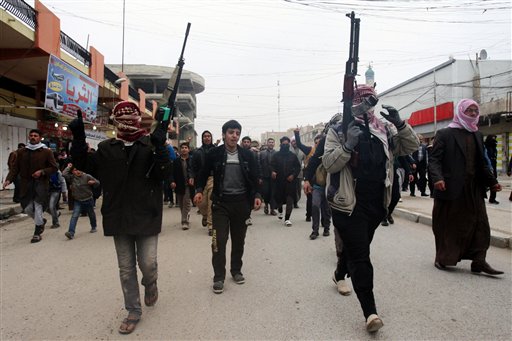News broke late last week that Islamists had seized control of two western Iraqi cities, Fallujah and Ramadi. U.S. forces suffered hundreds of dead and wounded in battles against Al Qaeda for control of these cities during the Iraq War. Now they are lost again to resurgent terrorist forces, and Secretary of State John Kerry has ruled out sending U.S. troops to help the Iraqi government regain control, thought he says that we “support” it.
This is the Democrat plan for Iraq: defeat. It was forestalled for several years by the success of George W. Bush’s surge–which, unlike President Barack Obama’s indecisive Afghanistan “surge,” was guided by military victory and not by electoral timetables. It was brought about by Obama’s predictable decision to break a campaign promise he made in 2008 to “keep some troops in Iraq,” especially to carry out strikes on Al Qaeda.
Instead, Obama pulled American troops out completely, after a half-hearted and completely cosmetic effort to negotiate an agreement with the new Iraqi government to keep them there. In so doing, Obama inflicted three strategic setbacks on the United States: he ensured that Iraq would be less stable, he deprived the U.S. of a key regional base against terror groups, and he removed a source of military pressure on the Iranian regime.
The president campaigned for re-election on the claim that he brought an end to the war in Iraq. That turns out to be only the latest lie: by withdrawing precipitously, he ensured war in Iraq would continue. The sacrifices of U.S. and allied troops are now–needlessly–in vain. It is a reminder that the pursuit of peace at any price–still a preoccupation of the Obama administration in its dealings with Iran–virtually ensures a future of violence.

COMMENTS
Please let us know if you're having issues with commenting.